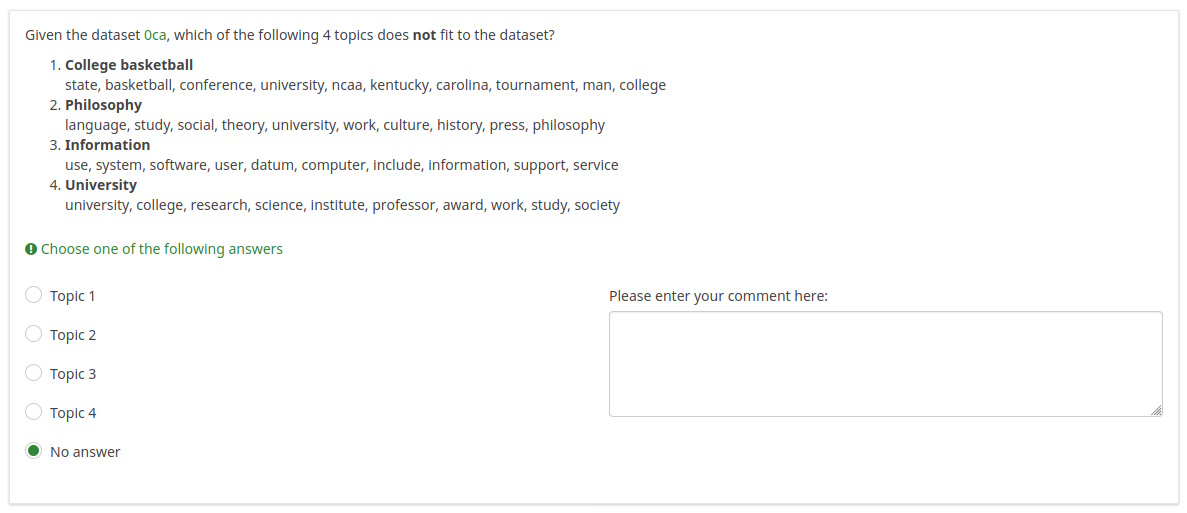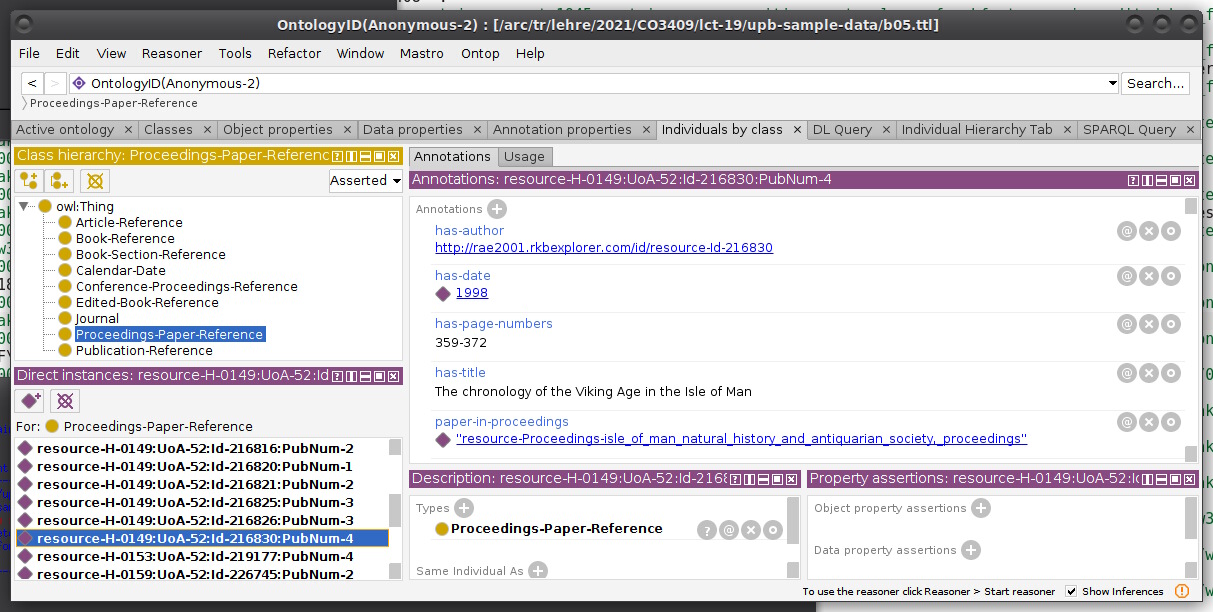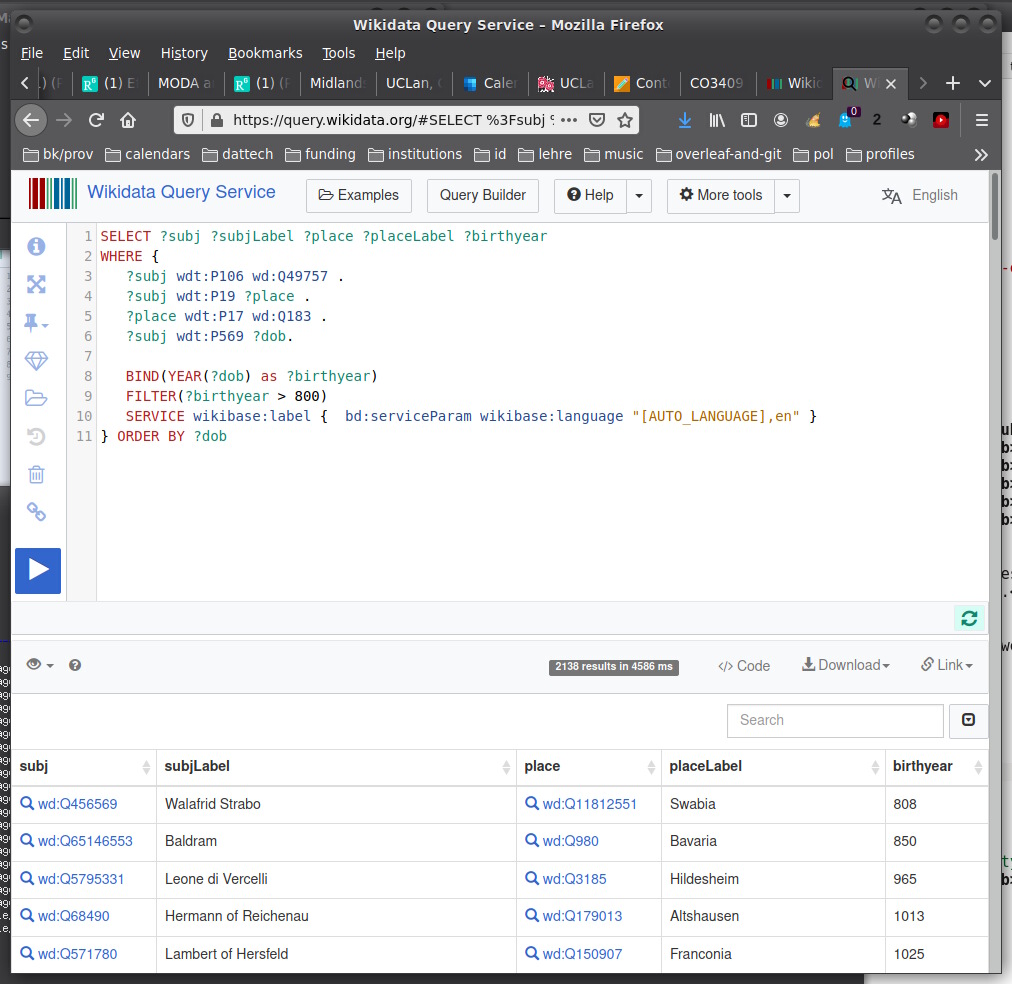
The RDF dataset survey launched recently at the University of Paderborn gives you an opportunity to examine representative datasets and at the same time support research and development on the annotation and documentation of data.
Go through the survey. At each step, you will be given a dataset to download. The files are in N-triples format, which is compliant with TTL format, but restricted to just showing a sequence of triples, e.g., as follows:
<http://data.semanticweb.org/organization/german-research-center-for-artificial-intelligence-dfki> <http://www.w3.org/1999/02/22-rdf-syntax-ns#type> <http://xmlns.com/foaf/0.1/Organization> . <http://data.semanticweb.org/organization/german-research-center-for-artificial-intelligence-dfki> <http://xmlns.com/foaf/0.1/name> "DFKI" .
In full turtle notation, having introduced the appropriate prefixes, the above might instead have been rendered as:
orgdata:german-research-center-for-artificial-intelligence-dfki a foaf:Organization; foaf:name "DFKI"^^xs:string.
Look at each RDF dataset; you can use a text editor for this, or if you have a working installation of Protégé, that tool might be helpful as well. Observe: What individuals, concepts, and relations do you find in each case? On this basis, which of the topic annotations suggested as alternatives within the survey is the least suitable?


The Wikidata SPARQL end point is a good device for training yourself in the practical use of SPARQL. The documentation contains a long list of query examples. The IRIs used by Wikidata are resolvable, employing the following prefixes:
@prefix wd: <https://wikidata.org/wiki/> @prefix wdt: <https://wikidata.org/wiki/Property:>
Accordingly, consider the following query from the list of examples:
# Birth places of German poets
#
SELECT ?subj ?subjLabel ?place ?placeLabel ?birthyear
WHERE {
?subj wdt:P106 wd:Q49757 .
?subj wdt:P19 ?place .
?place wdt:P17 wd:Q183 .
?subj wdt:P569 ?dob.
BIND(YEAR(?dob) as ?birthyear)
FILTER(?birthyear > 800)
SERVICE wikibase:label { bd:serviceParam wikibase:language "[AUTO_LANGUAGE],en" }
} ORDER BY ?dob
For example, in the first triple, wdt:P106 expands to https://wikidata.org/wiki/Property:P106, which is an object property labelled "occupation." The whole triple has the meaning "?subj has the occupation poet."
Practice formulating your own queries; for example, try asking for a table of Nobel laureates who are/were affiliated with the University of Manchester.

If you are interested in feedback on your work, send an email to Aaron Bryant and Martin Horsch.